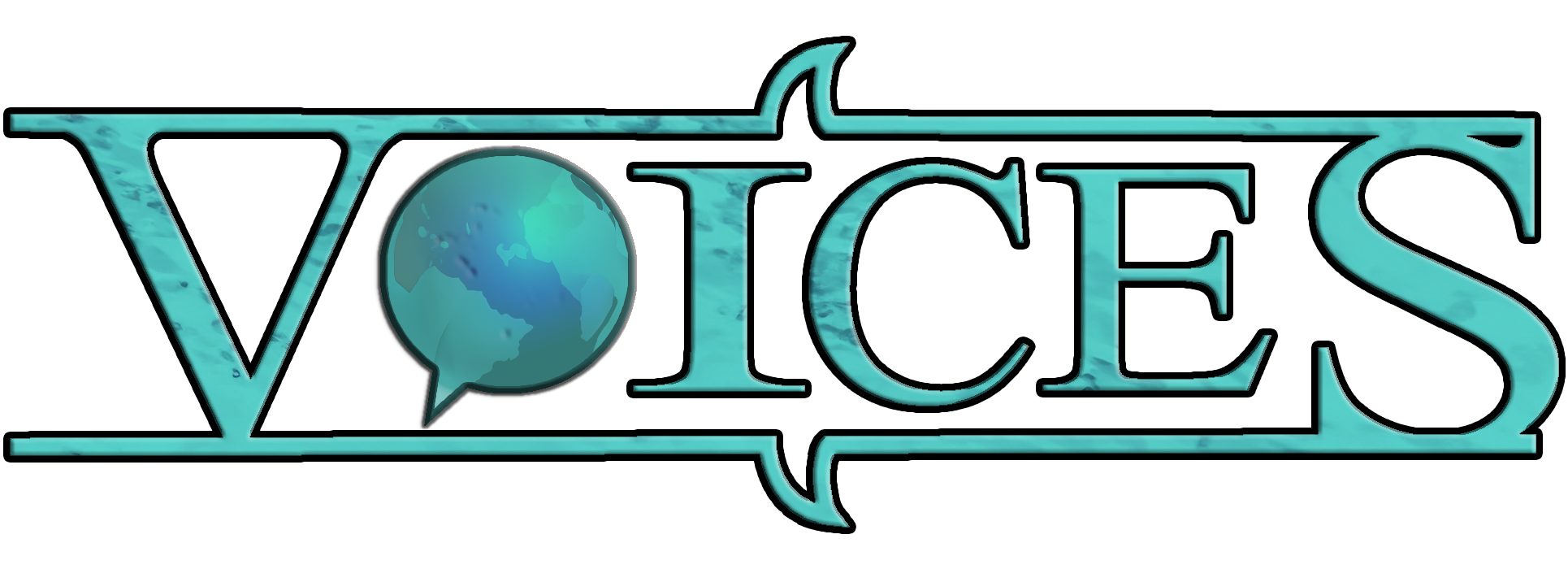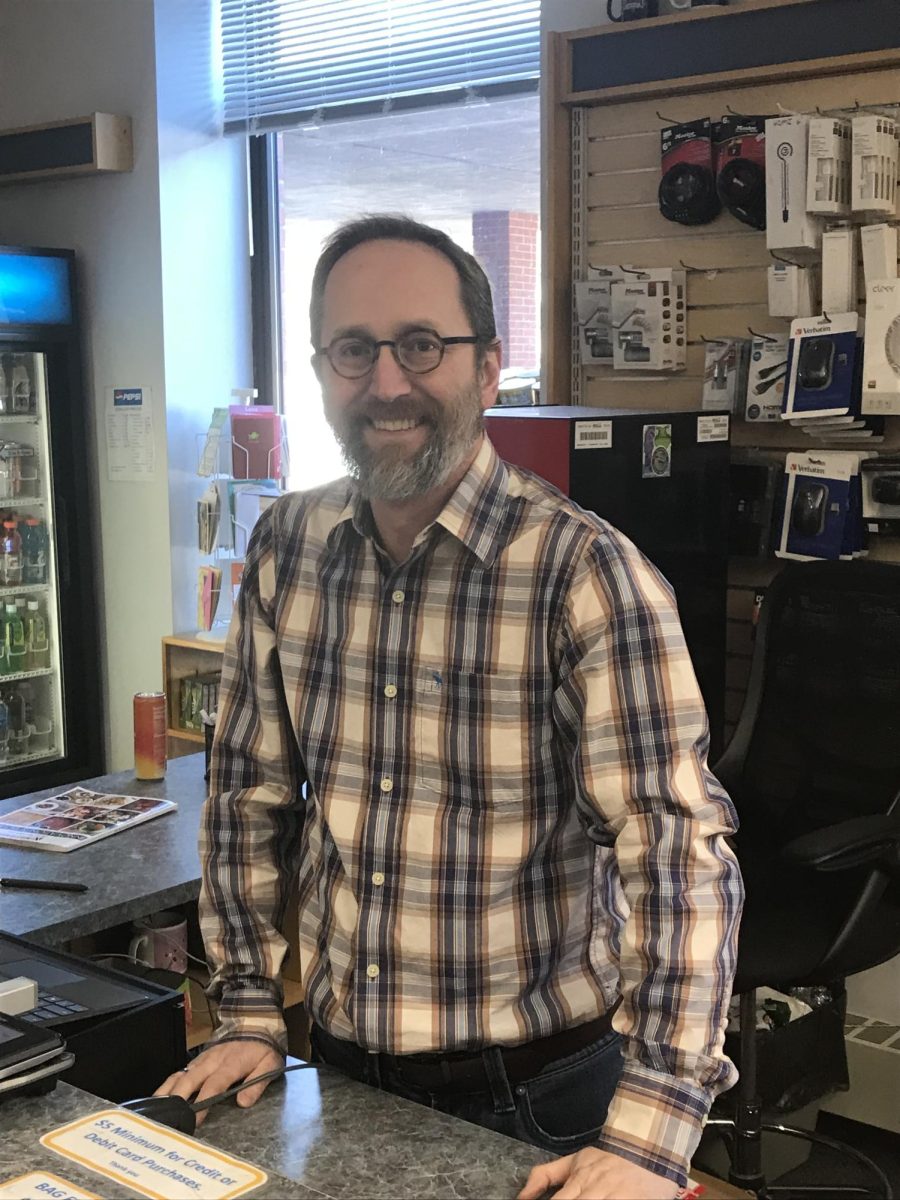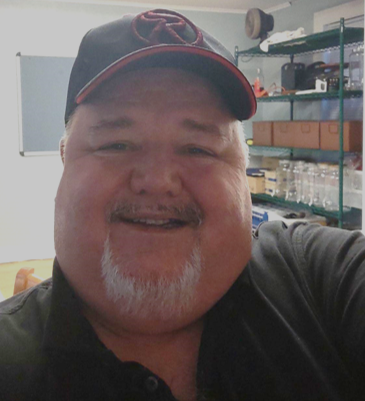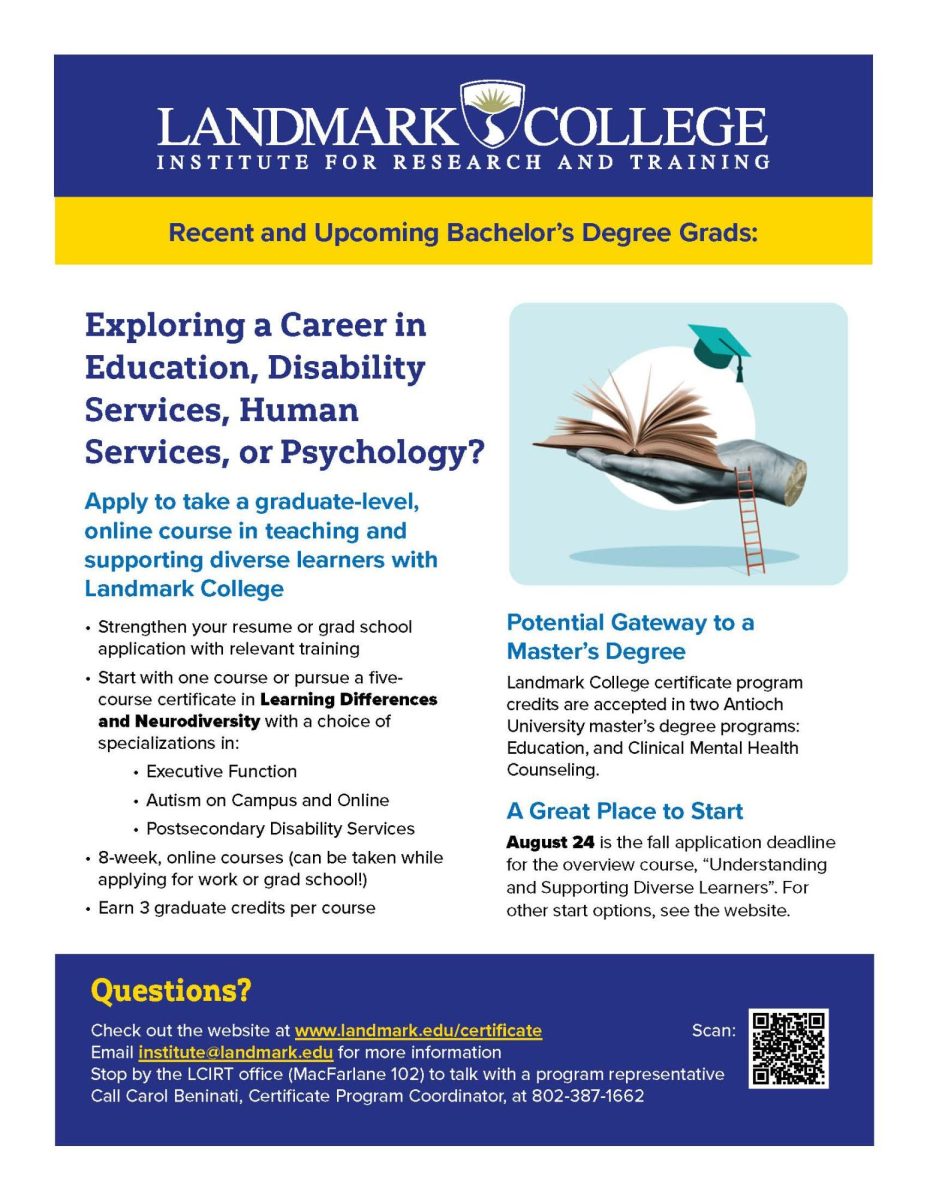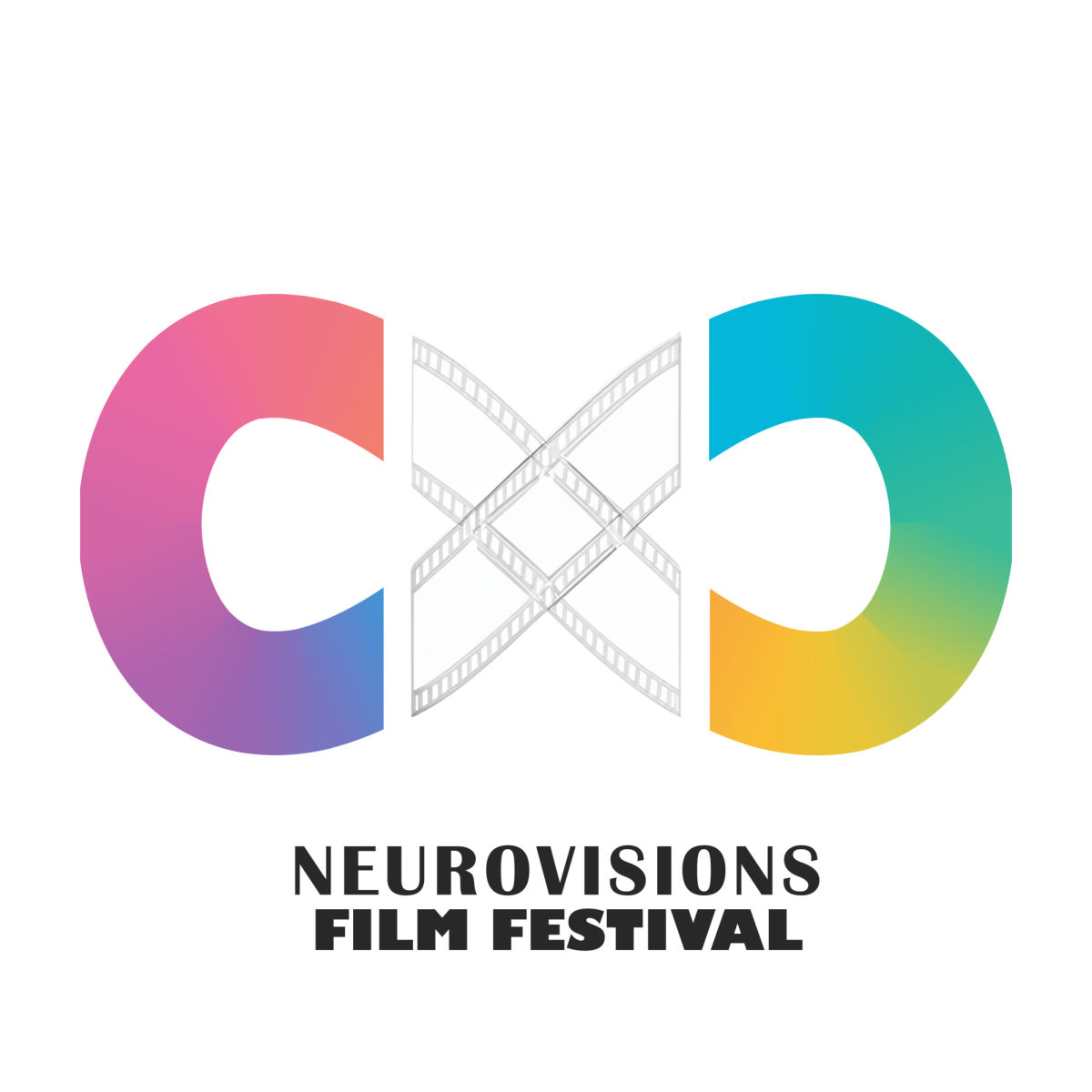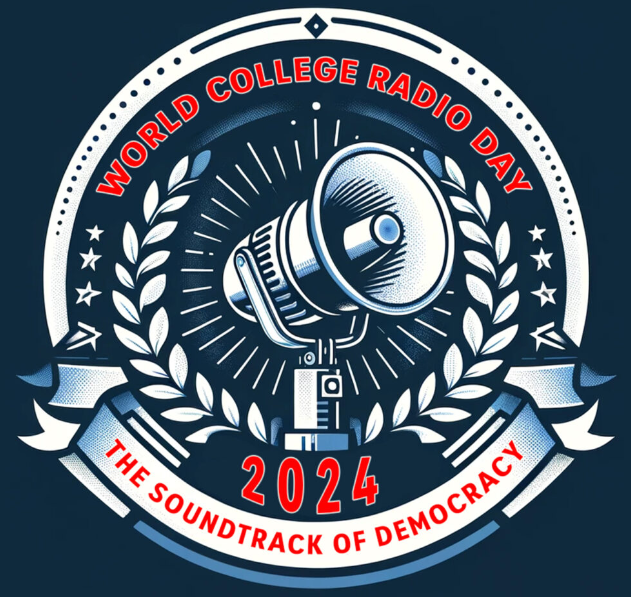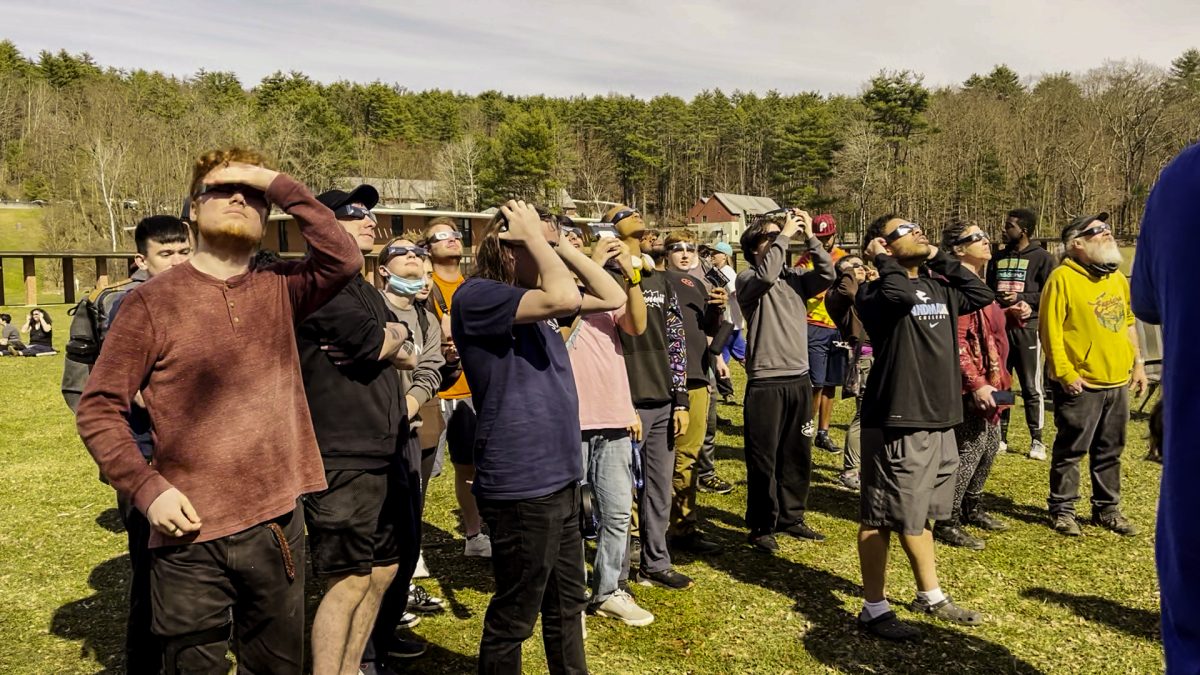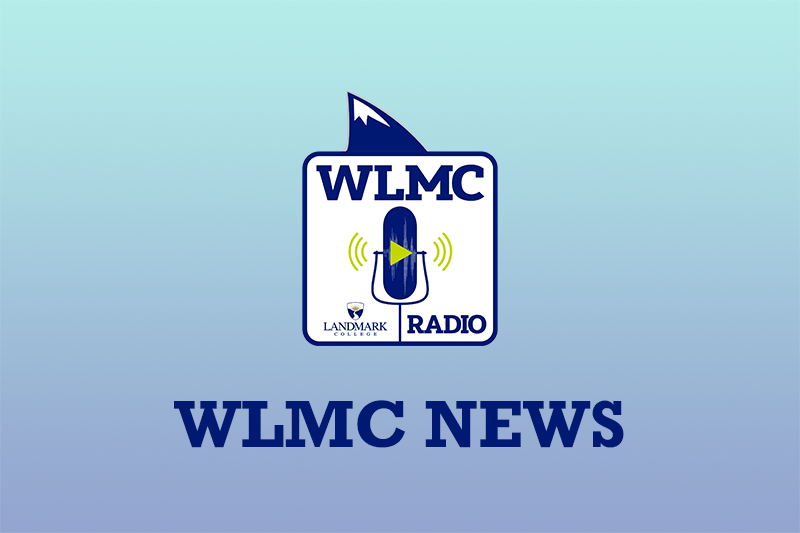This panel was made as promotional content for World College Day, for the theme of “Where All Voices Are Welcome”. The panelists are members from the LC Voices Advisory talking about the benefits of student media.
Eden:
Hello! This is Eden Kayser, Station Manager of WLMC, Landmark College Radio in Putney Vermont, and member of the College Radio Day USA Board. College Radio Day is on October 6th this year, and today I’m talking to students not only involved in WLMC, but Landmark’s student media hub which we call LC Voices, which includes the radio station, TV station, digital publication, and magazine.
Today I’m being joined by our LC Voices Advisory Board: Matthew Snell, Catherine Brogan, Guinevere Downey, and Jalen Cyrus as we talk about the benefits of student media here at Landmark College.
Guinevere Downey:
My name is Guinevere Downey, I’m the Station Manager of Voices TV.
Jalen Cyrus:
I’m Jalen, and I’m the director of technical operations for Voices TV.
Catherine Brogan:
I’m Catherine Brogan, News Assistant for WLMC and Photo Editor for LC Voices.
Eden Kayser:
I’m also the Director of Operations of LC Voices.
Matthew Snell:
My name is Matthew, I’m the Program Director and Station Manager here at WLMC Landmark College Radio.
Eden Kayser:
Why don’t we talk about Voices? Do you guys think that LC Voices, Voices TV and WLMC are important to the college and local community?
Catherine Brogan:
Well, I think it’s important to get people’s voices heard. If they’re shy, I know you’re coming from a neurodiverse standpoint. Not all people are strong enough to go up to a microphone and talk to everybody. So, for that purpose, everybody’s voice should be heard.
Guinevere Downey:
I’ve been involved in Voices for a very long time, so I have some old documentation and one of our very first things that we did when we were creating voices was come up with a mission statement and I think the mission statement sums up my feelings on why voices are important:
As neurodiverse students, we have been silenced in the past. This is a place where our voices will be heard. We are Landmark. These are our voices. This Is Us.
I just think it’s really important for us to be able to be heard as neurodiverse students.
Jalen Cyrus:
Yeah, I was going to say the same thing. As a Landmark student, it’s very important to put your voice out there and express yourself on any sort of media.
Eden Kayser:
For neurodivergent students especially, it’s really important to get your voice out. I do a lot of self-advocacy pieces. If you look at my staff page on LC Voices, you’ll see a lot of articles about neurodiversity and a lot of them have come from my own experiences and situations that I wish I’d self-advocated for and I think that’s why it’s so important to have student media not just at Landmark College, a school for neurodivergent people, but any college.
I remember the first time I had any interaction with Voices was in the spring of 2021, where I submitted an essay, I had written that I didn’t think that anyone would care about, but my professor said people would and that gave me the confidence to get published, which was something I thought I’d never do.
The positive feedback was really great and when I became a radio DJ for WLMC, I did more and more. If we didn’t have the opportunity to have student media on campus, I don’t really know what I’d be doing right now.
Matthew Snell:
So, for me, working for Voices is a way to get a lot of experience with media outlets. I want to join the film industry, so getting these experiences now actually feels kind of fun and exciting. It takes a lot of guts to get up there, but working here is probably one of the best jobs I’ve ever had in my life.
Eden Kayser:
I just wanted to mention really quick that student media isn’t just beneficial to content creators and people looking for experience, it’s also beneficial to the overall community. It’s great to have news casts each week, to know what the weather is, to know about events going on at campus, and it’s just good to know what’s going on in campus and in your college town, and having all of that content generated by students makes it special. So, I’m interested to know how and why did you guys get involved in student media at Landmark?
Guinevere Downey:
I’ve been involved in Voices for the longest of anyone here; I’ve been involved since we started the magazine in Fall 2019, which was our first issue.
I was doing an advanced news reporting class, and the professor put together the very first two issues of Voices magazine and then the following semester, we began turning the magazine in the guided leadership practicum class into a student-run organization while still producing it.
A term that was thrown around a lot in that class was “building a plane while flying it” so it was a lot of work. I took a break for a while, but when I came back I got directly involved in Voices TV and TV has been my passion for a very long time.
Jalen Cyrus:
I started Voices TV back in Fall 2022. I was also in the TV club at the time. I was mostly doing the teleprompter. But when Gyuri thought about including a weather report, he asked me if I wanted to do it, and ever since, I’ve been doing the weather report on Voices TV and also did report weekly campus news sometimes and now I’m an intern, and right now I’m enjoying every single minute of it.
Catherine Brogan:
I first saw WLMC because my dad was working in radio at the time at his college, so he influenced me to do radio. So, in my freshman year of Fall 2022, I got directly involved in WLMC because I thought I didn’t have many close friends and all these experiences that other people have had, so I got directly involved and got to know a lot of people. I was a little nervous going on the air my first time but getting published for Voices, I later thought “let’s try it out”.
That Fall semester I got my photos published, and I thought wow, this is really something. So, I signed up for publication in the Spring, and I fell in love with Voices, and here I am now, doing my second year of publication and radio.
Eden Kayser:
I wouldn’t say I officially got involved with Voices until I joined radio in Spring of 2022. This was when I had decided I wanted to switch majors from an art degree to a communications degree. I decided to take that leap and take a radio production class here at college, and I had a really good time on my show. I remember being very nervous prior to getting on air, and yes, I did make some mistakes, as everybody does when they’re first getting on the air and that’s one of the benefits of college media. I had such a good time prepping my show, writing out what I want to talk about, playing music, inviting guests on my radio show, and then I was offered a leadership opportunity to become the Associate Station Manager and that was a big step for me, and now I am one of two Station Managers. It’s been really beneficial for me, and my career goals and professional development.
I also started getting involved with publication last year, that was also beneficial for me because it just feels so good to be on the page where you can see everything people wrote, the videos Voices Tv has produced, and some of our content from radio is up there as well and it’s a really good way to bring people together, and that’s when I decided to do an internship as Director of Operations, and now I’m even helping Voices TV with some of their broadcasts.
Matthew Snell:
So, I started in Fall of 2020. My advisor actually was talking to me, and I needed to get one credit taken out of the way or something for some graduate plan, and so my advisor was telling me all the options that could take for 1 credit. So, I asked about radio, and she said, “ok sure”. So, in the Spring of 2021, I took radio and basically for the start of radio, it was sort of hard, but then around the end of that year, it started to get better and better and better and better and actually became a lot more fun than when I started doing it. After that, somewhere around that year, that’s when my advisor said, I should change degrees and get communications because they have a lot more film classes now than they did in the past and also, I was doing radio. After that I kept doing radio until this day and then I joined the leadership team, and then I kept getting promoted.
I did some other Voices stuff such as being an intern for Voices TV last Fall, which was also fun as well, and taking all these classes, and all these radio classes, and taking all of the film classes have always been fun. I feel like last semester I had a lot of really fun classes, but I feel like this semester is the most fun semester I’ve ever had here at Landmark.
Eden Kayser:
Is it easier to get involved with student media at a college versus various mainstream media platforms?
Guinevere Downey:
Oh, it’s 1000% easier to get involved with college media. Here, you just really have to send an email to [email protected]. But if you want to get involved with a community radio station or TV station or a community newspaper, you’ve got to apply for a job, that’s a difficult prospect.
Eden Kayser:
It really is tough. I was looking into getting a job at a radio station after college and it’s hard, you have to audition, you get rejected a lot. I remember reading Beyond Powerful Radio by Valerie Geller and she mentioned that you get rejected a lot. You have got to send them your best to work, you got to be prepared, you got to do an interview, they’re going to put you on the mic and see how you do. It’s pretty much like auditioning for a play or a role in a movie. It’s not easy at all and having these resources at college is really helpful for people who do want to go into the radio industry or the TV industry or into journalism, or work for a newspaper.
Luckily, at least here at Landmark, it’s very easy to get involved, almost anything you submit to us, will get published, will get on the air, will get filmed. I know plenty of people who have just done radio at college and then gone down a completely different path, but they said that was fun and that’s what got them through college.
Catherine Brogan:
It’s easier to get involved in college radio because you have all these opportunities at Landmark College to get on the air and for a person that may not know about these resources you have to get your voice heard, it may be a little bit hard and there may come some challenges in the road, but I feel like in this industry with neurodiversity, it’s really easy to get on air and do all this stuff in college and get all these opportunities.
When you get out there in the world, the radio stations and TV stations and the film industry, it’s way harder. You have to work 10 times harder; you have to push yourself to the limit, and make sure you work so hard and then you have to work even harder to get to your goal.
Jalen Cyrus:
Being part of any sort of media, especially at Landmark, is pretty easy. I know that in the real world it can be really, really challenging.
Eden Kayser:
Thank you for joining me today and talking about student media. To anyone who is listening, I highly encourage tuning in on October 6th, as we’re having our World College Radio Day event which will be twenty-four hours long with college radio stations participating all over the world. Don’t just support WLMC and Landmark College, support your local college radio station by tuning in on October 6th.
Thank you for listening to our discussion of student media and Voices. To view, listen to, or watch our work, please go to lcvoices.com, for our website, wlmc.landmark.edu, for our radio station, and Voices TV on YouTube. You can also find us on social media if you use Facebook, Instagram, or X.
This is Eden Kayser, Station Manager of WLMC signing off.
Interested in joining the LC Voices family? Talk to your academic advisor about taking classes in Publication, Radio, and/or TV.
For non-credit opportunities talk to our student leaders:
Eden Kayser (LC Voices Publication)
Matthew Snell (WLMC Radio)
Guinevere Downey (Voices TV)
You can also reach out to our faculty advisors:
Chris Lenois (LC Voices Publication)
Eric Matte (WLMC Radio)
Gyuri Kepes (Voices TV)
